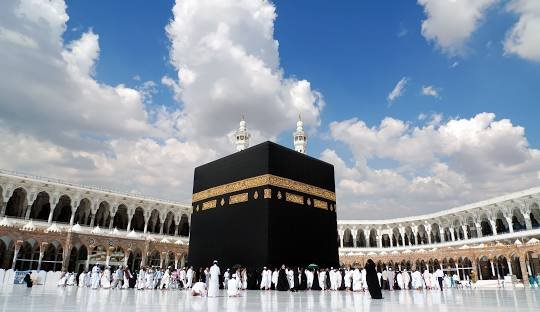Performing Umrah during Ramadan is a spiritually profound experience. It is considered one of the most rewarding times to visit Makkah, combining the merits of fasting, prayer, and pilgrimage. However, choosing the best Ramadan Umrah package can be overwhelming, given the variety of options, budgets, travel routes, and spiritual considerations. This guide will help you make informed decisions by exploring the historical context of Ramadan Umrah, practical budget strategies, spiritual insights, and problem-solving tips for a seamless pilgrimage experience.
1. Understanding the Significance of Ramadan Umrah
Ramadan is a month of heightened devotion, reflection, and charity. Performing Umrah in this month is considered exponentially rewarding compared to other times of the year. Historically, pilgrims would endure long, arduous journeys via camel caravans or foot, braving deserts and unpredictable conditions to reach the holy city of Makkah.
Why this matters for modern pilgrims:
Understanding this historical context highlights why planning your pilgrimage is crucial. The physical and spiritual preparation needed in the past reflects the importance of intention, resilience, and careful planning. Even with modern conveniences, the essence remains: your preparation and choices will directly impact your spiritual experience.
Problem: Many pilgrims underestimate the challenges of traveling during Ramadan, leading to exhaustion or missing key rituals.
Solution: Recognize that Ramadan travel involves fasting, large crowds, and limited resting time. Plan your schedule with adequate rest, early arrivals, and meal considerations (Suhoor and Iftar).
2. Types of Ramadan Umrah Packages
Modern travel agencies offer multiple package types. Choosing the right one is about balancing comfort, convenience, cost, and spiritual focus. Common types include:
- Economy Packages: Budget-friendly, usually involve standard hotels, group travel, and limited free time.
Ideal for: Pilgrims prioritizing cost-effectiveness and basic rituals. - Standard Packages: Mid-range accommodations, some guided tours, and moderate flexibility.
Ideal for: First-time pilgrims or those seeking a balance between budget and convenience. - Premium Packages: Luxury hotels, proximity to Masjid al-Haram, private transportation, personal guides.
Ideal for: Pilgrims prioritizing comfort, reduced travel fatigue, and maximum focus on spiritual rituals. - Custom Packages: Tailored itineraries based on personal preference, budget, or group size.
Ideal for: Families, elderly pilgrims, or those with specific worship goals.
Problem: Choosing based solely on price may compromise proximity to the Haram, rest, or spiritual engagement.
Solution: Compare the inclusions—hotel distance, meal provisions, group size, transport quality—and align with your personal priorities.
3. Budgeting Your Ramadan Umrah
Budget planning is essential. Packages vary widely, often depending on hotel quality, airline, transportation, group size, and additional services such as guided tours or meal plans.
Step-by-step budgeting guide:
- Flight Costs: Book early to secure better rates. Direct flights save energy and time.
- Accommodation: Consider distance to Masjid al-Haram—closer hotels may cost more but reduce walking fatigue during fasting.
- Transport: Check if the package includes airport transfers, city shuttles, or private buses.
- Meals: Some packages provide Iftar and Suhoor, which are crucial during Ramadan.
- Visa & Documentation Fees: Ensure these are included or clearly listed.
- Contingency: Always allocate 10-15% extra for unforeseen expenses (medications, local transport, emergencies).
Problem: Hidden costs can disrupt budgeting and add stress during the pilgrimage.
Solution: Always request a detailed breakdown of what is included and compare multiple agencies. Read reviews from past pilgrims about transparency and hidden charges.
4. Evaluating Package Quality: Key Factors
- Accommodation Proximity:
Hotels near the Haram allow pilgrims to rest and perform rituals efficiently, especially when fasting. Even a 10-minute walking difference can affect your daily schedule during Ramadan. - Transportation and Transfers:
Reliable airport transfers and intercity travel (e.g., to Medina for visits to Masjid Nabawi) reduce fatigue and ensure timely arrival for rituals. - Group Size:
Smaller groups often provide more personalized guidance, easier crowd management, and better access to prayer spaces. Large groups may face delays, especially during peak Ramadan nights. - Guided Services:
Knowledgeable guides enhance spiritual understanding, explain rituals properly, and assist with logistics, particularly for first-time pilgrims. - Flexibility vs. Structure:
A highly structured package may limit free time for reflection, extra prayers, or individual dua. Ensure the itinerary allows moments for personal worship.
Problem: Some packages prioritize commercial efficiency over spiritual experience.
Solution: Prioritize packages that emphasize spiritual enrichment, proximity to worship sites, and manageable schedules over flashy extras.
5. Practical Problem-Solving Tips for Pilgrims
5.1 Managing Fatigue and Health
Traveling while fasting and navigating crowded areas can be physically demanding.
- Solution:
- Rest during peak heat hours (after Dhuhr and before Asr).
- Hydrate properly during non-fasting hours.
- Wear comfortable, breathable clothing and supportive footwear.
5.2 Coping with Crowds
Ramadan attracts millions to Makkah, creating congestion during prayers and rituals.
- Solution:
- Plan Tawaf and Sa’i at less busy times (early morning or late night).
- Select packages that offer early access to prayer spaces or smaller group arrangements.
5.3 Maintaining Spiritual Focus
Amidst the excitement and logistics, it’s easy to lose sight of the pilgrimage’s spiritual objectives.
- Solution:
- Set daily intentions: dedicate specific prayers, Quran reading, or dua times.
- Reflect nightly on personal growth, lessons learned, and acts of charity.
5.4 Balancing Rituals and Exploration
While Umrah is central, visiting Makkah’s historic and cultural sites enriches understanding.
- Solution:
- Schedule short, meaningful excursions during non-fasting hours or after Iftar.
- Focus on spiritual insights from each visit rather than purely sightseeing.
6. Selecting the Right Travel Agency
Key Considerations:
- Reputation: Check reviews, testimonials, and ratings from previous pilgrims.
- Experience: Agencies specializing in Ramadan Umrah have better crowd management and local insights.
- Transparency: Clear communication about costs, itinerary, and services is crucial.
- Customer Support: 24/7 support during travel ensures immediate assistance for emergencies.
Problem: Misleading agencies may lead to stress, overcrowding, or missed rituals.
Solution: Conduct thorough research, compare at least 3-4 agencies, and confirm details in writing before payment.
7. Maximising Blessings and Spiritual Rewards
The ultimate goal of Ramadan Umrah extends beyond logistics—it is a journey of the heart. While packages handle practicalities, pilgrims should focus on intent, reflection, and charity.
Tips to maximize spiritual blessings:
- Sincere Intention (Niyyah): Begin your journey with a heartfelt commitment to seek closeness to Allah.
- Charity and Good Deeds: Engage in acts of kindness and give to those in need; Ramadan is a month of generosity.
- Extra Worship: Utilize quiet hours in Masjid al-Haram for additional prayers and Qur’an recitation.
- Personal Reflection: Keep a journal to record insights, dua, and spiritual growth throughout the pilgrimage.
Problem: Pilgrims may return without meaningful transformation, focusing only on rituals.
Solution: Treat every act, from travel patience to waiting in prayer lines, as part of your worship and reflection.
8. Summary Checklist for Choosing the Best Ramadan Umrah Package
| Factor | Considerations | Solution |
| Budget | Accommodation, flights, meals, transport, visa | Compare packages, include contingency |
| Location | Proximity to Masjid al-Haram | Prioritize walking distance for convenience |
| Group Size | Small vs large | Smaller groups enhance personal experience |
| Guidance | Knowledgeable guides, multilingual support | Ask about guided tours and spiritual instruction |
| Flexibility | Free time for worship | Ensure the itinerary allows personal reflection |
| Health & Comfort | Rest, hydration, weather | Plan rest times, proper clothing, and footwear |
| Agency Reputation | Reviews, experience, transparency | Research multiple agencies and confirm details |
9. Final Thoughts
Choosing the best Ramadan Umrah package requires balancing history, budget, and spiritual blessings. Understanding the historical journey of pilgrims, evaluating modern packages critically, planning finances carefully, and addressing practical challenges will enhance both your convenience and spiritual fulfillment.
Remember: the package is a tool. Your mindset, preparation, and devotion define the true value of the pilgrimage. By carefully selecting your package and planning wisely, you can maximize your reward, minimize stress, and experience Ramadan Umrah as the deeply transformative journey it is meant to be.







